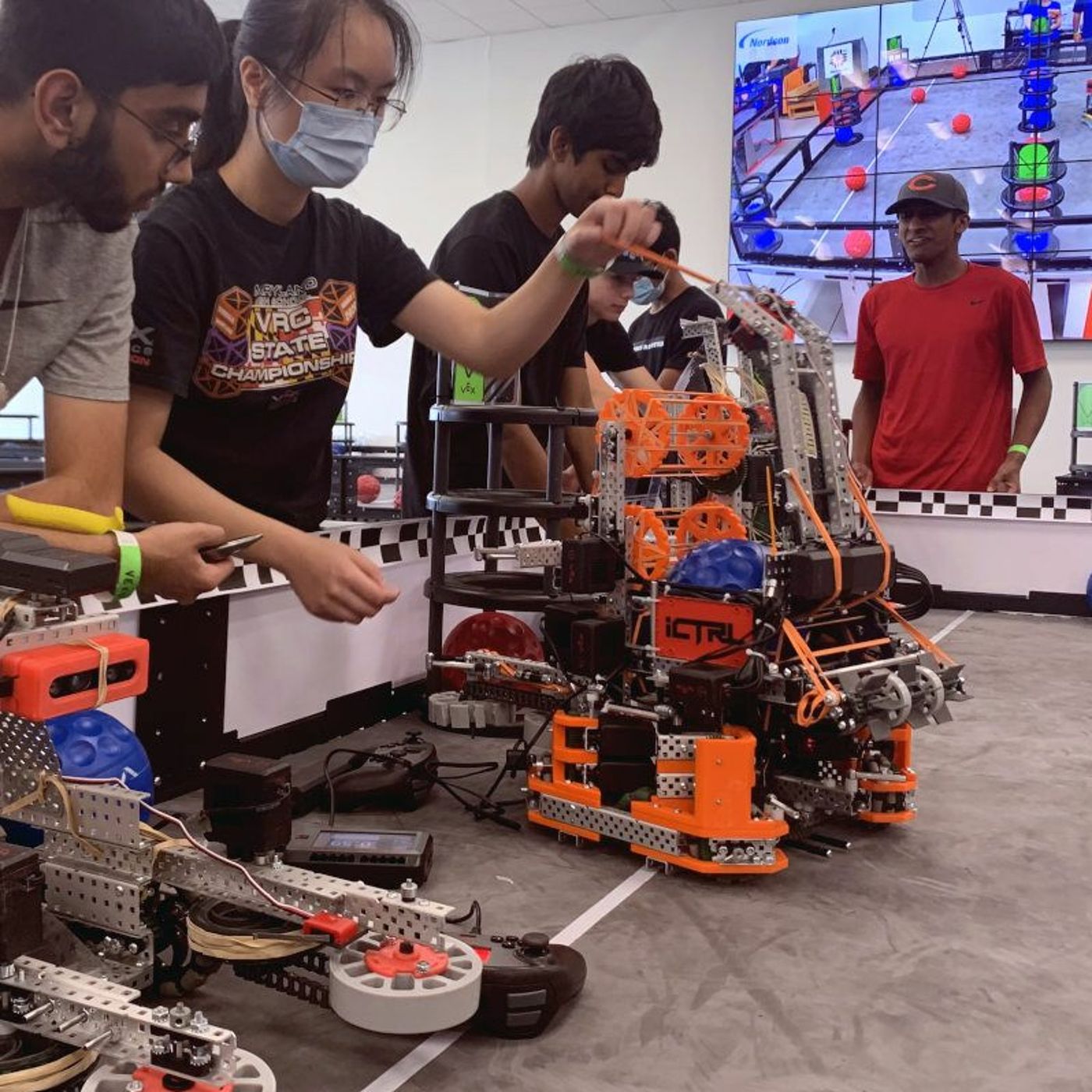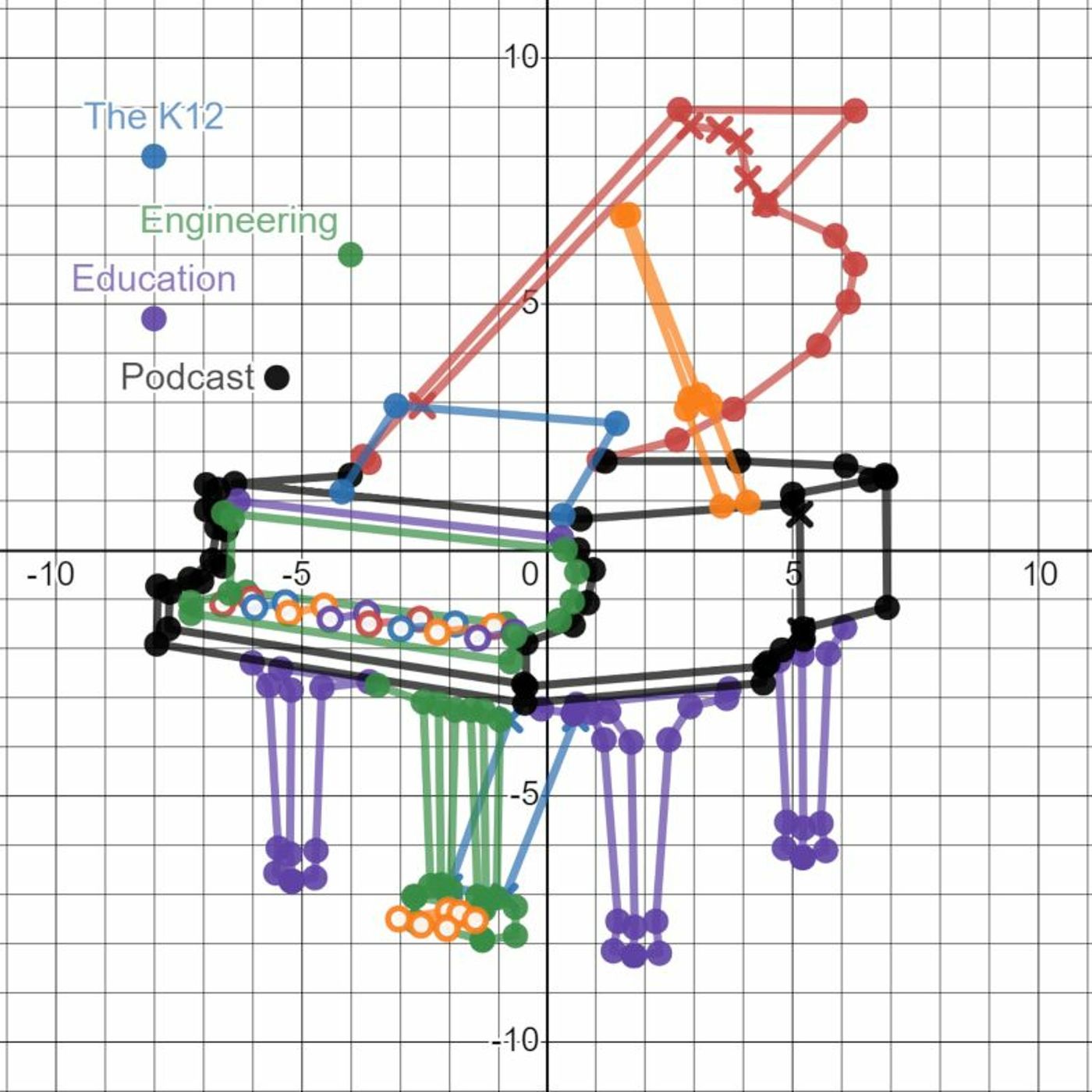Let’s make equations musical. Instead of visualizing equations on a graph, let’s listen to them on the piano, merging all our math and music knowledge. You can make two-dimensional x-y math equations audible – or sonify them – by translating the x-values to time and the y-values to the keys of a piano. If you can’t play them on the piano yourself, we can use the free web app Chordinates! by Pios Labs to do it instead. Listen to the sound of coordinates, linear equations, polynomials, trigonometric functions, and random distributions of notes on the piano, and analyze their patterns. Then take the audio review quiz at the end, complete with extended creative and technical challenges. Got your own reactions to this episode? Would love to hear your thoughts.
Related to this episode:
• Chordinates! beta, a free web by Pios Labs:
https://www.pioslabs.com/chordinates/• Coordinate plane, from Desmos.com:
https://www.desmos.com/calculator/q8mwzeylbk• HCI Beyond the GUI, book by Philip Kortum:
https://www.amazon.com/HCI-Beyond-GUI-Nontraditional-Technologies/dp/0123740177/ref=sr_1_1?ie=UTF8&s=books&qid=1241987101&sr=8-1
• Google nGram viewer, for analyzing the prevalence of the words “sonify” and “sonification”:
https://books.google.com/ngrams/graph?content=sonify%2Csonification&year_start=1800&year_end=2019&corpus=26&smoothing=3&direct_url=t1%3B%2Csonify%3B%2Cc0%3B.t1%3B%2Csonification%3B%2Cc0Music credits:
All clips used are under Creative Commons 0 Licenses, including from the following artists.
• Tyler Schanck, The Wandermiles:
www.thewandermiles.com• Doctor Dreamchip:
https://www.youtube.com/channel/UCbhlcItuC6pmhhemUjhPt1w• Moz5a:
www.mankus.co.uk• Sondre Drakensson:
https://soundcloud.com/drakensson93• Eathan Markson:
https://soundcloud.com/eathan-markson• Don Veca:
https://soundcloud.com/dveca/sets/generative-jazz• Komit:
https://freesound.org/people/Komit./• Epon Audio:
https://www.patreon.com/EponAudio?fan_landing=true• Nate Ziller:
http://www.nateziller.com/• Julian Evans:
http://www.julianevans.info/Equations referenced:
• y = x,
https://www.pioslabs.com/chordinates/index.html?&x=x-scale-custom&xmin=0&xmax=51• y = -2x,
https://www.pioslabs.com/chordinates/index.html?&x=x-scale-custom¶ms=-2,0&xmin=0&xmax=51
• Linear equation, minor scale:
https://www.pioslabs.com/chordinates/index.html?&m=diatonic-cminor&x=x-scale-custom¶ms=1,-1&xmin=0&xmax=51
• Linear equation, chromatic scale:
https://www.pioslabs.com/chordinates/index.html?&m=chromatic&x=x-scale-chromatic-origin&y=y-scale-chromatic-origin• y = x^2,
https://www.pioslabs.com/chordinates/index.html?f=quadratic-standard&x=x-scale-custom¶ms=1,0,0&xmin=0&xmax=51
• y = 16sin(x), free rhythm,
https://www.pioslabs.com/chordinates/index.html?f=trigonometric-sin&r=rhythm-even-y¶ms=16,1,0,0
• y = 5vtan((1/2)x), free rhythm,
https://www.pioslabs.com/chordinates/index.html?f=trigonometric-tan&r=rhythm-even-y¶ms=5,0.5,0,0
• Square wave, amplitude = 2, offset = 2, major 3rd harmony,
https://www.pioslabs.com/chordinates/index.html?f=sgn-cos&h=harmony-majorthird¶ms=2,1,2
• y = uniform random distribution, from -23 to 28,
https://www.pioslabs.com/chordinates/index.html?f=statistical-rand-uniform¶ms=28,-23
Subscribe and find more podcast information at:
http://www.k12engineering.net. Support Pios Labs with regular donations on Patreon:
https://www.patreon.com/pioslabs. You’ll also be supporting projects like the Engineer’s Guide to Improv and Art Games, The Calculator Gator, or Chordinates! Thanks to our donors and listeners for making the show possible. The K12 Engineering Education Podcast is a production of Pios Labs:
http://www.pioslabs.com.
















